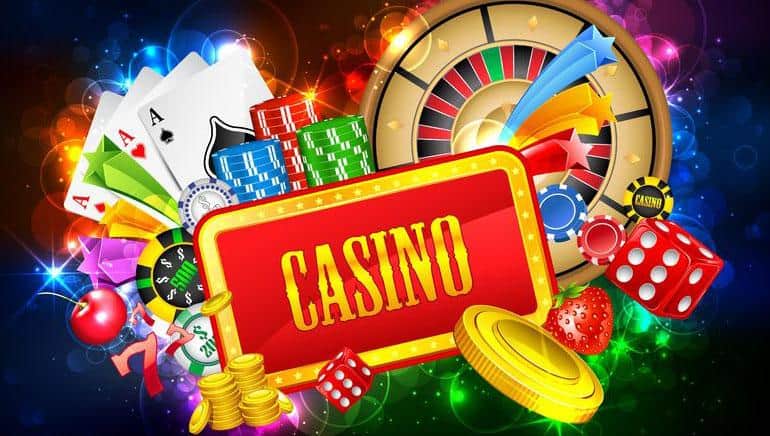
Gambling in casinos has long been a topic of fascination and controversy, drawing in millions of players around the world. With a mix of chance, strategy, and the excitement of risk, casino games offer an exhilarating escape from everyday life. However, as entertainment becomes ever more available, it invites a more thorough examination of the ethical implications surrounding these games.
At the heart of the debate lies the issue of whether casinos promote safe gambling or take advantage of vulnerable individuals. The appeal of potential winnings versus the truth of losses can create a complex situation, and understanding this balance is essential for both players and operators. As we delve into the ethics of casino gaming, we will explore the duties of casinos, the effects on society, and the steps that can be taken to foster a better gaming environment.
The Impact of Casino Gaming on Society
Casino gaming has a significant influence on societal dynamics, affecting not only the economy but also interpersonal dynamics and community structures. The revenue generated from casinos can lead to employment opportunities and boost local economies, as they provide various employment opportunities in multiple fields including hospitality, leisure activities, and retail. However, while the financial benefits can be significant, communities often grapple with the possible negative impacts that arise from increased gambling activity.
Moreover, the presence of casinos can lead to an rise in gambling addiction, presenting significant challenges for players and families. The thrill of casino games can quickly evolve into a compulsive habit, affecting connections with others and leading to monetary issues. Many individuals may find it difficult with the loss of control over their gambling habits, resulting in a need for assistance programs and help to address this increasing issue. The social cost of addiction can ripple through kinships and neighborhoods, creating an urgent need for responsible gaming initiatives.
In addition to the economic and social ramifications, casino gaming often showcases cultural attitudes towards risk and leisure. It can encourage a sense of joy and leisure, attracting visitors and boosting local travel. However, this allure may also mask the broader implications of gambling as a method of entertainment, raising ethical questions about its advertisement and availability. As communities weigh the benefits and drawbacks of casino gaming, the need for responsible practices and regulation becomes increasingly critical in ensuring that the beneficial elements are maximized while reducing the negative effects.
Ethical Issues in Gambling Practices
The morality of gambling operations often center around the risk for addiction and its consequences on individuals and households. Betting can lead to serious financial distress, impacting not only the gamblers but also their loved ones. As people become entrapped in the appeal of winning, many lose sight of their financial limits, which can result in devastating outcomes such as bankruptcy. This raises moral questions about the responsibility of casinos in fostering safe gambling habits and offering support for those who may be struggling with gambling addiction.
Another major issue is the advertising of gambling to vulnerable populations. Gambling establishments often target low-income people or neighborhoods with the promise of fast rewards, which can perpetuate patterns of poverty and despair. In this situation, the morality of advertising strategies used by gambling establishments come under scrutiny, as they may take advantage of the need of individuals seeking an escape from economic troubles. This manipulation raises moral questions about the integrity of the gambling industry and its responsibility to safeguard its most vulnerable customers.
Additionally, the effect of casino operations on society as a entirety cannot be overlooked. While some argue that casinos create jobs and boost local economies, others point to the social costs associated with problem betting, increased criminal rates, and a burden on public services. Balancing financial advantages with the risk for social harm presents a challenging ethical dilemma for lawmakers and gambling operators alike. The difficulty lies in finding a responsible approach that prioritizes the welfare of individuals and society while still allowing for the enjoyment of casino activities.
Regulation Framework and Responsibilities
The regulatory structure pertaining to casino operations is created to ensure justice, honesty, and player safety. Multiple government entities and gambling commissions establish and enforce regulations that dictate how casino activities work, the criteria for game design, and the protocols for handling rewards. These regulations vary by jurisdiction but commonly involve licensing requirements for operators and stringent measures to prevent cheating and fraud.
In furthermore to governing bodies, gaming businesses bear major duty in upholding moral standards within their venues. They must implement safe player practices that promote gambler protection and awareness, including presenting self-limitation options and offering information about the hazards associated with gambling. Operators are also obligated for educating workers to spot signs of problem gaming and know the proper measures to support visitors in trouble.
Moreover, openness in gambling operations is vital for gaining and maintaining public trust. Casinos should present clear information about the probabilities of activities, marketing deals, and any associated dangers. By promoting an culture of honesty and accountability, casinos can help reduce the possible harmful impact of gaming while enhancing the overall betting experience for all participants. keonhacai5
